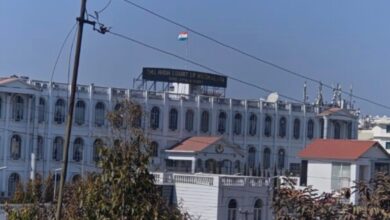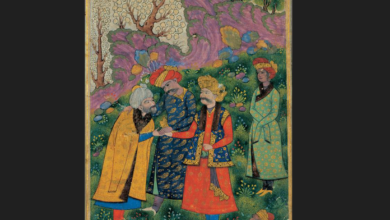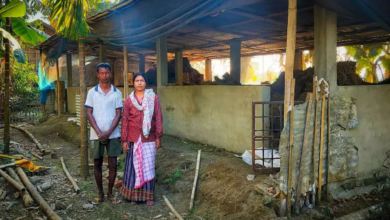Stories from North East win hearts in city of joy
Three films, including a documentary, by directors from Assam and Manipur screened at 30th Kolkata International Film Festival
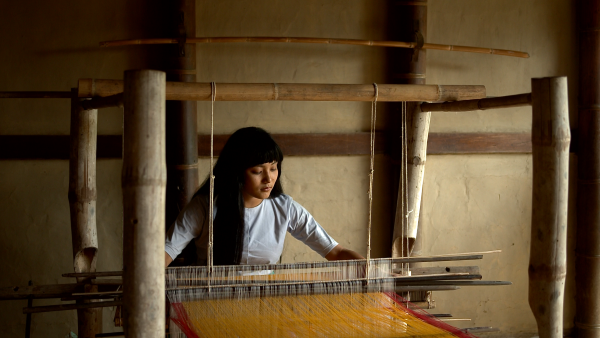
From the banks of the Brahmaputra through the weaves of Meitei culture and tradition to the mysterious forests of Arunachal Pradesh, three films from the North East won the hearts of cinephiles at the 30th Kolkata International Film Festival (KIFF). The films — Borkha: The Veil by Hiren Bora, Chara Iyong by Ningthouja Lancha and Alokanv by Paramesh Deka — were screened under the ‘Unheard India: Rare Language Films’ category.
The Sunday Monitor team watched the screenings at Radha Studio in South Kolkata and caught up with two of the directors to learn more about their films.
Burkha: The Veil
 This is the story of Reshma, an adolescent Muslim girl from an economically backward family, and her struggle to be free from the shackles of poverty and religious fanaticism through education. Though the burkha suffocates her, she cannot reject the social diktat. She finds support in her mother who wants her to study and not get married at a tender age.
This is the story of Reshma, an adolescent Muslim girl from an economically backward family, and her struggle to be free from the shackles of poverty and religious fanaticism through education. Though the burkha suffocates her, she cannot reject the social diktat. She finds support in her mother who wants her to study and not get married at a tender age.
“Child marriage remains a significant issue in entire India, including Assam. Despite being prohibited by law, child marriage is still prevalent, especially in rural and remote places. Hence, I decided to choose this subject to bring about more awareness,” Bora told Sunday Shillong.
Also, “Assam has seen an upward trend in literacy rate compared to earlier years but I feel that more awareness is required in remote places”, the director said as he cited the example of Mizoram, which has a literacy rate of 90%.
Bora’s film sends out a strong social message. At the same time, it talks about the intrinsic problems in Assam villages along the mighty Brahmaputra. The annual floods and loss of agricultural land to rapid erosion add to the survival crisis for villagers. Reshma’s family is also a victim of nature’s wrath. But she is determined to overcome the adversities, both natural and man-made, to achieve her goal.
The film was shot in three seasons “to keep the real essence”.
“The rainy season was the toughest… It was indeed an overwhelming experience,” said Bora, who has been visiting KIFF since 2009 and “it is close to my heart”.
When pointed out that Shillong, which is closer to Guwahati than Kolkata, is missing out on Assamese films, Bora said the gap can be bridged through exchange programmes, state initiatives, frequent film festivals, and most importantly, public interest.
Chara Iyong (Looms and Life)
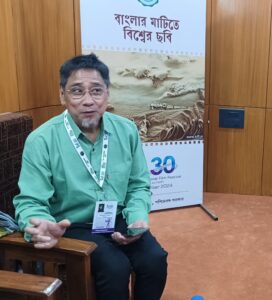
This documentary film traces the past and present of the weaving tradition among Meiteis and the role of women in keeping the practice alive.
The director, Ningthouja Lancha, started shooting the documentary in 2017 and visited several remote villages to find out about the weaving tradition and how women “weave their emotions and love in the various motifs”.
Music plays an important part in the film and narrates the importance of the handloom in the daily lives of the Meitei community in Manipur. The film begins with an old song composed by well-known musician and playwright B Jayanta Kumar Sarma. The folk songs by women weavers make the viewers’ journey through the looms and lives of the villagers endearing.
Lancha tells the story through culturologist Mutua Bahadur, the common thread in the weavers’ journey. Bahadur introduces the audience to the different weaves, tools, practices and the space reigned by women.
However, the onslaught of time and the ongoing political tension in the state are threatening the tradition. “If the tension continues for another five years, then I don’t think the tradition will be there anymore,” said the director in his introductory speech before the screening.
He also rues the reluctance of the young generation to take up weaving as a profession. “I am making this documentary as an archive (under the aegis of the Directorate of Handlooms and Textiles, Manipur). The process of documenting the weavers will continue. I had to stop shooting because of the violence in the state. We could not go to any place beyond the Imphal valley in the last 19 months,” the director told Sunday Monitor.
Talking about the ongoing ethnic clashes in his home state, Lancha said it is time that we think about others and reassess the colonial model of dividing people. “If there is any problem or grievance, it can be solved through dialogues. Killing people is not a democratic way (of achieving goals),” he added.
Lancha informed that before the violence disrupted the shooting of the documentary, he visited a Kuki village and was documenting the tribe’s weaving culture. “It’s an irony. And now, we can’t tell each other’s stories as we will be targeted,” he said.
Lancha’s chronicling of the weavers’ story seems poignant in the light of the inferno that has engulfed the northeastern state.
Alo kanv (Seven Days)
 In the sleepy town of Basar in Arunachal Pradesh’s Lepa-Rada district, the dominant Galo tribe lives close to nature. The tribal populace deeply believes in the folklore about the forest and its keeper. It believes that if one tries to destroy nature, the protector of the forest will punish the individual. While this belief keeps the tribe rooted in its tradition, Arnav Bordoloi, a young writer, is lost in the surrealism.
In the sleepy town of Basar in Arunachal Pradesh’s Lepa-Rada district, the dominant Galo tribe lives close to nature. The tribal populace deeply believes in the folklore about the forest and its keeper. It believes that if one tries to destroy nature, the protector of the forest will punish the individual. While this belief keeps the tribe rooted in its tradition, Arnav Bordoloi, a young writer, is lost in the surrealism.
(Read: Bengali director makes first Galo film; to work with other tribes)
Bordoloi visits his friend in his village in Basar looking for inspiration for his next book. His friend introduces Bordoloi to the Galo way of life and living. He explains the importance of the forest and protecting it. This fascinates Bordoloi and piques the writer’s interest to know more about the tribe.
In his quest to discover the essence of tribal life, Bordoloi loses himself in the labyrinth of real and surreal. His city upbringing makes it difficult for him to understand the strong belief system in the village.
Life amid nature is simple and yet complex if seen through the lens of the uber-urbanised and director Paramesh Deka makes use of this to add layers to his simple narrative.
~ Team Sunday Monitor



